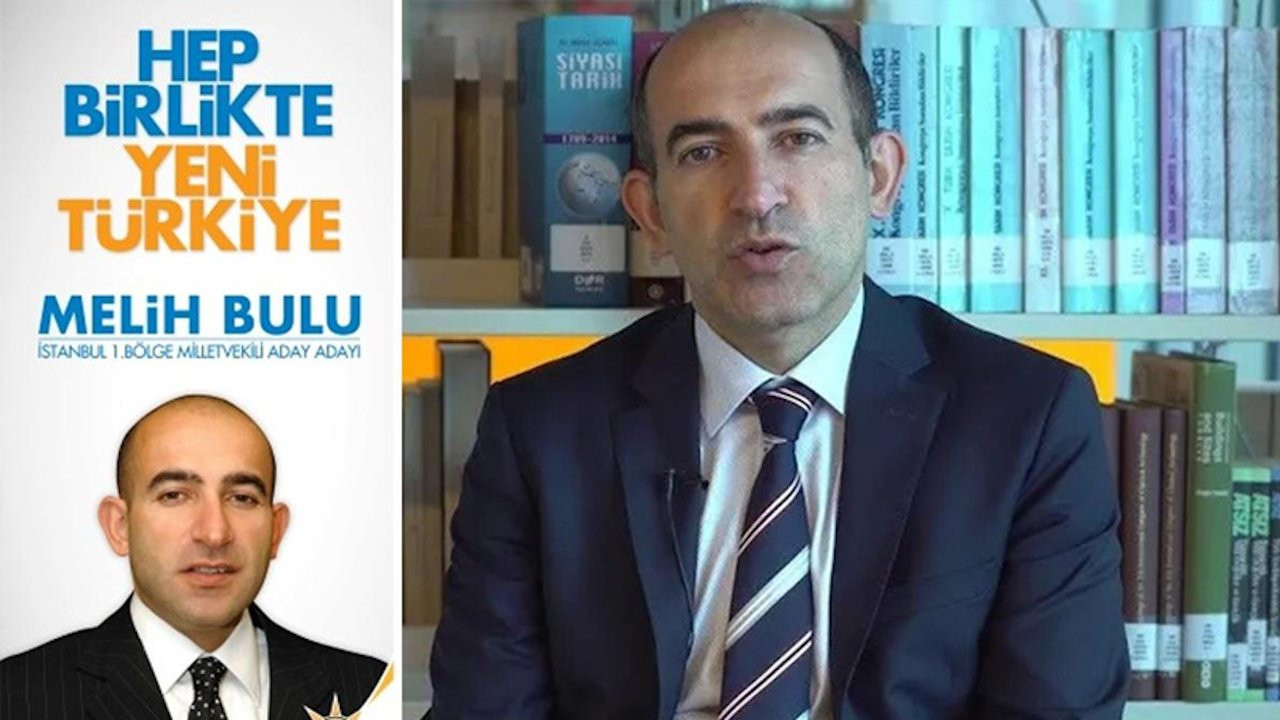Boğaziçi University remains defiant in the face of Erdoğan's attempts to crush academic freedom
Boğaziçi University academics have released a statement regarding the scandalous rector appointment to the university, saying that they will not give up. "It is indispensable that universities be free from any pressure or influence from a person or an institution and not be used as a political tool," they said in the statement.
Duvar English
Boğaziçi University academics have slammed the appointment of a rector close to the ruling Justice and Development Party (AKP), saying that they won't give up.
Melih Bulu, who was a candidate from the AKP in the previous general elections, replaced the current rector of the university on Jan. 1 upon President Recep Tayyip Erdoğan's orders, prompting outrage on social media and raising further concerns on Turkey's academic freedom.
Bulu, whose credentials fall significantly short of being the rector of one of Turkey's most prestigious universities, was also a founding member of a district branch of the AKP.

"An academic outside Boğaziçi University community was appointed as rector, which is a practice introduced for the first time after the 1980s military tutelage. This is yet another case of many ongoing anti-democratic practices since 2016, aiming at abolishing rectorial elections," read the statement released by academics on Jan. 3.
On January 1, 2021 at midnight, an academic outside Bogazici University community was appointed as rector. We do not accept it as it clearly violates academic freedom and scientific autonomy as well as the democratic values of our university. #WeDoNotAcceptWeDoNotGiveUp pic.twitter.com/HiyX9suVZn
— Can Candan (@yunusunbabasi) January 3, 2021
"We do not accept it as it clearly violates academic freedom and scientific autonomy as well as the democratic values of our university," they added.
In their statement titled, "We Do Not Accept, We Do Not Give Up!" the academics also said that they won't compromise the principles the University Senate officially adopted in 2012, which states that universities must be free from any pressure or influence from a person or an institution and must not be used as a political tool.
"For academic freedom, it is imperative that decision-making processes be delegated to democratically elected academic administrators and boards. All academic administrators including the Rector, Deans, Directors of Institute, Directors of Schools and Department Heads can be appointed only after being elected by the university community," is another principle.
"As universities are autonomous constitutional establishments, it is vital that university instructors and/or university boards decide on academic programs and research policies, which is an essential prerequisite for scientific freedom and creativity," is the third principle cited in the academics' statement.
"We strictly adhere to the principles above and we pledge to follow them up with all the other members of our university community," the statement concluded.
Shortly after Bulu's appointment, Boğaziçi University students protested the move by using the hashtag #KayyumRektörİstemiyoruz, which translates as "We don't want a trustee rector."
"As Boğaziçi University students, we don't accept pro-government rectors who are appointed with total disregard for democratic processes. Melih Bulu is not our rector," said Boğaziçi Dayanışması, an independent student platform.
Cumhurbaşkanlığı kararnamesiyle okulumuza Melih Bulu'nun kayyum olarak atandığını öğrendik. Boğaziçi öğrencileri olarak demokratik süreçleri tanımadan atanan yandaş rektörleri kabul etmiyoruz.Melih Bulu bizim rektörümüz değildir! #KayyumRektörİstemiyoruz @melihbulu @UniBogazici pic.twitter.com/30zxxXZnbx
— Boğaziçi Dayanışması (@boundayanisma) January 1, 2021
The appointment was also slammed by a number of other universities, including Istanbul Technical University and Middle East Technical University.
Democracy and Progress Party (DEVA) leader Ali Babacan, meanwhile, said that universities should be autonomous.
"Our country needs free academia, scientists and productive students. This freedom and productivity can't be established by the appointment of trustees," Babacan said on Twitter.
Üniversiteler özerk olmalıdır. Ülkemizin özgür akademiye, özgür bilim insanlarına ve üretken öğrencilere ihtiyacı var. Bu özgürlük ve üretkenlik, kayyum atamalarıyla sağlanamaz. #KayyumRektörİstemiyoruz. Özgür bir akademi istiyoruz.
— Ali Babacan (@alibabacan) January 2, 2021
Strikingly enough, Bulu released a statement filled with grammatical errors on Jan. 3 without addressing intense criticism against his appointment, thanking Erdoğan and the Council of Higher Education (YÖK).
Merhaba Boğaziçi pic.twitter.com/bmO1ufZd7l
— melih bulu (@melihbulu) January 3, 2021
While his poor Turkish writing skills stunned many, the fact that his English skills were also below average was revealed earlier.
Adding to the scandal surrounding the appointment, Twitter users on Jan. 2 discovered that his master's and doctoral theses were full of plagiarism, just like his other academic works.
Now this is very interesting. A very detailed analysis of Melih Bulu’s doctoral thesis from Boğaziçi University where he is now the Rector.
— Can Okar (@canokar) January 2, 2021
That looks like A LOT of paragraphs taken word for word from multiple publications. I dread to think of what the Turnitin would be... https://t.co/w0CVxl8BoL
New Boğaziçi University rector Melih Bulu's Master's thesis appears to have also used extensive direct quotes in place of his own words https://t.co/wUfVVDdRW1
— Ankaralı Jan (@06JAnk) January 3, 2021
